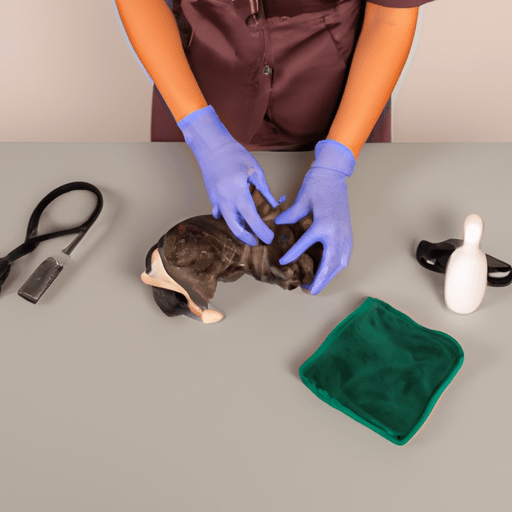Understanding Your Dog’s Anal Glands
You may not be aware, but your furry friend has two small glands located just inside their rectum. These anal glands are designed to release a pungent fluid, which is a form of canine communication. However, sometimes these glands can become blocked or infected, causing discomfort for your pet. It’s crucial for you, as a caregiver, to understand how to clean your dog’s anal glands to provide comfort and maintain their overall health.
Why You Need to Clean Your Dog’s Anal Glands
Just like brushing their teeth or grooming their coat, cleaning your dog’s anal glands is essential for their wellbeing. When functioning properly, these glands empty naturally when your dog defecates. But, occasionally, they can fail to empty, leading to blockage or impaction. Signs your dog may be experiencing this include:
- Scooting their rear-end along the floor
- Persistent licking or biting at their backside
- Swelling or redness around the anus
If left untreated, this can lead to severe infections or abscesses, causing your dog immense discomfort and possibly requiring surgical intervention.
How to Clean Your Dog’s Anal Glands
Step 1: Preparation
Ensure you have the following items:
- Latex gloves
- Warm water
- Soft cloth or gauze
- Lubricant (petroleum jelly or a similar product)
Step 2: Locating the Glands
The anal glands are positioned at approximately the 4 o’clock and 8 o’clock positions around your dog’s anus.
Step 3: Expressing the Glands
This should be done gently to avoid causing your dog discomfort. If you’re unsure, consult a vet or professional groomer before attempting this at home.
Step 4: Cleaning and Aftercare
Clean the area thoroughly with warm water and a soft cloth. Monitor your dog for any signs of discomfort or infection over the following days.
When to Seek Professional Help
While you can clean your dog’s anal glands at home, it’s always best to consult with a professional if you’re unsure. Some dogs, particularly small breeds, can be more prone to anal gland issues and may require regular professional cleanings.
FAQ Section
Q: How often should I clean my dog’s anal glands?
A: It varies depending on the dog. Some may need monthly cleanings, others may never need it. Always consult with your vet.
Q: Can I harm my dog by cleaning their anal glands incorrectly?
A: Yes, if done incorrectly, it can cause discomfort, injury, or infection. If in doubt, seek professional help.
Q: What are the signs that my dog’s anal glands need cleaning?
A: Common signs include scooting, excessive licking of the area, or a foul smell.
Q: Can a diet change help with my dog’s anal gland issues?
A: Yes, a high-fiber diet can help your dog naturally express their anal glands. Consult with your vet for dietary advice.
Remember, your dog relies on you for their wellbeing. Ensuring you’re informed about all aspects of their health, including the less pleasant ones, will help keep them happy and healthy.



